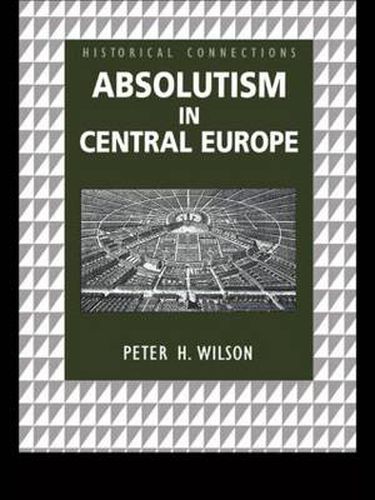Readings Newsletter
Become a Readings Member to make your shopping experience even easier.
Sign in or sign up for free!
You’re not far away from qualifying for FREE standard shipping within Australia
You’ve qualified for FREE standard shipping within Australia
The cart is loading…






Absolutism in Central Europe explores the form of European monarchy known as absolutism, how it was defined by contemporaries, how it emerged and developed, and how it has been interpreted by historians and political and social scientists. Absolutism used to be seen as a distinct form of monarchy that dominated the European continent and defined an entire age. It was believed to be a key stage in the transition from feudalism to capitalism and an era of colourful monarchs such as Louis XIV. The concept of absolutism has been undermined by modern historians. In this accessible survey, Peter Wilson investigates how scholars have defined and explained political development during what was formerly known as the age of absolutism. He assesses whether the term can still be a useful analytical tool. Drawing on the experiences of central Europe from the early 17th century to the beginning of the 19th century, this book examines the wider implications of state-building.
$9.00 standard shipping within Australia
FREE standard shipping within Australia for orders over $100.00
Express & International shipping calculated at checkout
Absolutism in Central Europe explores the form of European monarchy known as absolutism, how it was defined by contemporaries, how it emerged and developed, and how it has been interpreted by historians and political and social scientists. Absolutism used to be seen as a distinct form of monarchy that dominated the European continent and defined an entire age. It was believed to be a key stage in the transition from feudalism to capitalism and an era of colourful monarchs such as Louis XIV. The concept of absolutism has been undermined by modern historians. In this accessible survey, Peter Wilson investigates how scholars have defined and explained political development during what was formerly known as the age of absolutism. He assesses whether the term can still be a useful analytical tool. Drawing on the experiences of central Europe from the early 17th century to the beginning of the 19th century, this book examines the wider implications of state-building.